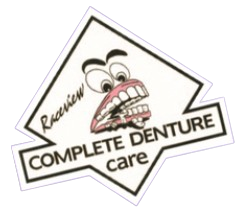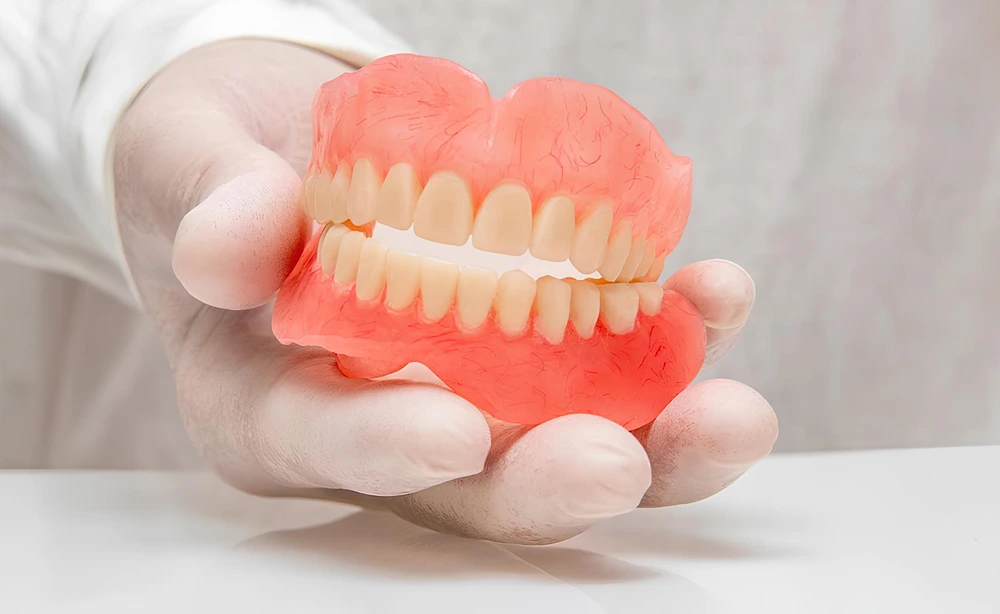Denture pain is a common challenge faced by many denture wearers, affecting their comfort, chewing ability, and overall oral health. It can range from mild soreness to sharp discomfort, often making simple daily activities, such as eating and speaking, difficult. Understanding why dentures cause pain is essential for taking timely steps to manage it and prevent long-term issues.
Several factors contribute to denture pain, including ill-fitting dentures, pressure points on the gums, changes in jawbone structure, or even improper cleaning habits. Denture sore spots often appear where the denture presses unevenly against the gums, while loose dentures can shift during eating or talking, causing persistent discomfort. Knowing the causes helps denture wearers take proactive measures, such as adjusting fit, maintaining hygiene, or using temporary relief techniques.
For residents in Ipswich, investing in custom dentures can significantly reduce discomfort and improve oral function. Custom-made dentures are specifically designed to match the unique contours of your mouth, ensuring a secure fit that distributes pressure evenly, minimizes sore spots, and supports long-term comfort while restoring natural speech and eating ability.
Common Causes of Denture Pain
Let’s start by pinning down why your dentures might be hurting you. Often, the culprit is a fit issue. Just like a pair of shoes that are too tight or loose, new or old dentures need some breaking-in or adjustment. Here are a few typical culprits:
Ill-fitting or new dentures: It’s normal for new dentures to feel odd. They might be slightly tight or loose until your mouth adjusts. Wearing dentures might feel strange at first and take a few weeks to feel comfortable. During this adjustment period, gentle soreness or pressure spots are common.
Pressure spots or rubbing: Sometimes a part of the denture presses on the gum or a sensitive spot. This can create a denture sore spot, which is a small irritated patch of gum. If you’ve ever woken up with a tender spot after lunch, your denture may have been rubbing there. If a denture causes pressure or sore spots, rinse with warm salt water and see a dentist for adjustments.
Bone and gum changes: Over time, jaw bones can shrink (a natural process after tooth loss). This can make even well-fitting dentures loose or wobbly. If dentures sit unevenly, certain areas might feel excess pressure, causing pain.
Poor cleaning or hygiene: Bacteria buildup on dentures can irritate the gums. A condition called denture stomatitis can cause sore, red gums under the plate. Keeping your dentures and mouth clean (by brushing them and resting your mouth overnight) helps avoid this discomfort.
Excessive adhesive or rough edges: Using too much denture adhesive can sometimes push the plate into your gums too hard. Also, any rough spots or sharp edges on the plastic can scrape tissue. That’s why it’s important not to clip or sand your denture yourself; leave that to a professional.
Common Denture Issues and Quick Fixes
| Denture Issue | Quick Tip |
| Localized gum pain (sore spot) | Rinse mouth with warm salt water, leave denture out, and book a denture adjustment. |
| General soreness | Give your mouth a few weeks to adapt. Eat soft foods, and avoid hard chewing. |
| Loose dentures | Use adhesive sparingly for the short term; plan a reline or replacement to fit the new shape of your gums. |
| Irritated, red gums | Clean dentures twice daily, soak them overnight, and brush your gums; consult a dentist if redness persists. |
| Corners of the mouth cracks | Adjust the fit at your dental clinic; keep lips hydrated. |
These causes cover the most painful situations. The key takeaway: denture pain doesn’t just happen randomly. There’s usually an identifiable reason, like pressure, fit, or hygiene, and addressing that root cause is the first step to relief.
Identifying Denture Sore Spots and Discomfort
One telltale sign of a fit issue is a sore spot. You might feel a sharp twinge or notice a red area on your gum after wearing your denture. These spots can become ulcers if unaddressed. Pain from sore spots is often just where the denture presses most.
If you see a sore spot:
- Rinse your mouth with warm, lightly salted water. This simple rinse can reduce inflammation and keep the area clean.
- Gently massage the sore spot with your tongue to increase blood flow (this helps healing).
- Give your mouth a break by taking the denture out for a few hours, especially overnight.
- Book an appointment: A dental prosthetist can gently adjust the plastic until it no longer digs into your gums.
Always pay attention if pain lasts more than a couple of weeks. Government health guides advise seeing a dentist or prosthetist if your mouth is sore or if ulcers (sores) persist. Chronic pain means your dentures likely need an expert tune-up.
Denture Pain Relief: Tips and Tricks
While you’re waiting for that fitting or decision on new dentures, here are some denture pain relief tips you can use at home. These are not permanent fixes, but they can make life much more comfortable day-to-day:
Warm saltwater rinse: Mix about half a teaspoon of table salt in a cup of warm water and rinse your mouth for 30 seconds, especially after meals. Salt water is a gentle antiseptic that soothes inflamed gums. It’s a time-tested method many Australians rely on.
Denture adhesive (short term): A high-quality denture adhesive cream or powder can stabilize a slightly loose denture so it doesn’t slip and rub. Be sure to apply only a tiny bit; too much adhesive can actually increase pressure. Speak to your pharmacist for adhesive options.
Pain relief gel or liquid: Products like numbing gel (e.g., benzocaine gel for mouth sores) can dull sharp pain at a sore spot until it heals. Use as directed and avoid swallowing.
Over-the-counter pain relievers: If the ache is bothering you, standard pain medications such as paracetamol or ibuprofen can help manage the discomfort while you work on a long-term fix.
Ice pack: Applying a cold pack or crushed ice wrapped in a cloth to the outside of your face can reduce swelling and numb pain if the sore spot is inflamed.
Gentle massage: Running your clean finger or a soft toothbrush over the sore spot (very gently!) can help break down inflammation.
These tips let you cope in the short term. But remember: if discomfort persists, it’s not something you should ignore. Persistent denture pain means an adjustment or new solution is needed, and in Ipswich, you have local experts to help.
Custom-Fit Dentures and Long-Term Comfort
One of the best long-term solutions to denture pain is having well-crafted, custom-fit dentures. Unlike generic over-the-counter plates, a custom denture is made specifically for your mouth shape, bite, and style. Here’s why they matter:
- Tailored fit: Each set of dentures is custom-made. Your dentist or dental prosthetist will measure and fit them for you. This careful process means fewer pressure spots.
- Quality materials: A prosthetist can offer materials (like flexible bases) that suit your cheeks and gums, reducing sharp edges.
- Precision alignment: Properly matched dentures sit evenly, distributing chewing forces across all gums, not just a painful spot.
If you get new dentures, remember there’s usually an adjustment period. Go slow: start with soft foods and mild chewing. And once your new dentures feel comfortable, maintain them carefully. Even the best dentures can cause issues if they become worn or if your mouth changes. Plan on periodic check-ups (at least yearly) to catch any fit changes early.
Preventing Denture Sores and Discomfort
An ounce of prevention is worth a pound of cure. Here are pro tips to keep those painful sores at bay:
Regular check-ups: Visit your denture prosthetist or dentist regularly (at least once a year). They can spot beginning discomforts before they worsen. If there’s bone loss or gum changes, a reline or new denture might be needed.
Proper cleaning: Clean your dentures after every meal and at bedtime. Use a soft brush and gentle soap or denture cleaner. Toothpaste can be too abrasive for the acrylic. Cleaning removes plaque and prevents infections that could irritate gums.
Soak overnight: Remove dentures at night. This allows your gum tissue to rest and recover, lowering the risk of chronic soreness or fungal infections. In fact, dental guidelines say it’s really important to take your dentures out before going to sleep at night.
Gentle handling: When cleaning or inserting dentures, do it over a soft towel or water-filled sink, in case you drop them. A cracked denture can have sharp edges that hurt.
Mind adhesives: If you need them, apply adhesives in thin ribbons and remove any excess. Too much paste can trap food and cause sores.
Hydration and diet: Staying hydrated helps your mouth stay less dry and more flexible. A well-lubricated mouth tolerates dentures better. Also, a balanced diet with calcium and vitamins helps maintain gum health.
Following these habits can greatly reduce denture discomfort. You’re essentially creating an environment where your dentures and gums peacefully co-exist. Many clients find that once they adopt a routine and leave their dentures out at night, their mouth feels fresher and pain-free by morning.
Finding Help at a Denture Clinic in Ipswich
If you’ve tried home remedies and upkeep but still struggle with pain, it’s time for professional intervention. In Ipswich, there are qualified denture clinics (including us at Raceview Complete Denture Care) where experts can help. Here’s what to look for:
Prosthetist expertise: Look for a registered dental prosthetist who specializes in dentures. They can pinpoint problem areas and adjust or remake dentures with a fine eye.
Custom solutions: Many clinics offer on-site labs and same-day services. For example, we provide custom denture solutions, meaning you work with the same practitioner from start to finish and get dentures tailored to your mouth.
Same-day repairs/adjustments: Painful issues can’t always wait for months. A local clinic that can do quick repairs or relines saves a lot of discomfort.
Friendly approach: You want a team that listens. Good denture clinics know that each person’s experience is unique. Tell them when and where it hurts; this history makes diagnosis fast.
Conclusion
Living with denture pain can significantly affect your quality of life, making everyday activities like eating, speaking, and even smiling uncomfortable. Understanding the common causes of discomfort, such as ill-fitting dentures, denture sore spots, or changes in jawbone structure, is the first step toward relief. Identifying these issues early allows you to take proactive measures, whether through proper hygiene, temporary home remedies, or professional adjustments, to ensure your dentures fit comfortably.
Addressing denture discomfort effectively often involves solutions such as denture relines, repairs, or investing in custom dentures designed to match your mouth’s unique contours. Preventive care, including regular check-ups and proper cleaning routines, is equally important to maintain long-term comfort and avoid recurring sore spots.
At Raceview Complete Denture Care, we provide a full range of services, including denture repairs, relines, and custom-fit solutions tailored to your needs. Book a free consultation today to address denture pain, explore your options, and experience comfortable, well-fitting dentures designed for your lifestyle.
FAQs:
Why do my new dentures hurt my gums?
New dentures often cause tender gums because your mouth needs time to adjust. The plastic presses on sensitive tissue until you “break them in.” This can lead to sore spots from constant rubbing. It’s normal for new dentures to feel odd for a few weeks.
How can I stop my dentures from causing pain?
Start with basic comfort measures: use warm saltwater rinses, apply any recommended denture adhesive carefully, and consider over-the-counter oral gels on sore spots. Remove your dentures overnight and clean them daily. Most importantly, see a denture specialist to check the fit.
What are denture sore spots, and how do I treat them?
Sore spots are irritated areas on your gum caused by the denture pressing too hard in one place. You might see a small red ulcer or feel a sharp pain there. Treat them by rinsing with warm salty water, leaving your denture out to heal, and gently massaging the spot. If pain continues, your dentist or prosthetist can gently reshape the denture until it fits without pressure.


